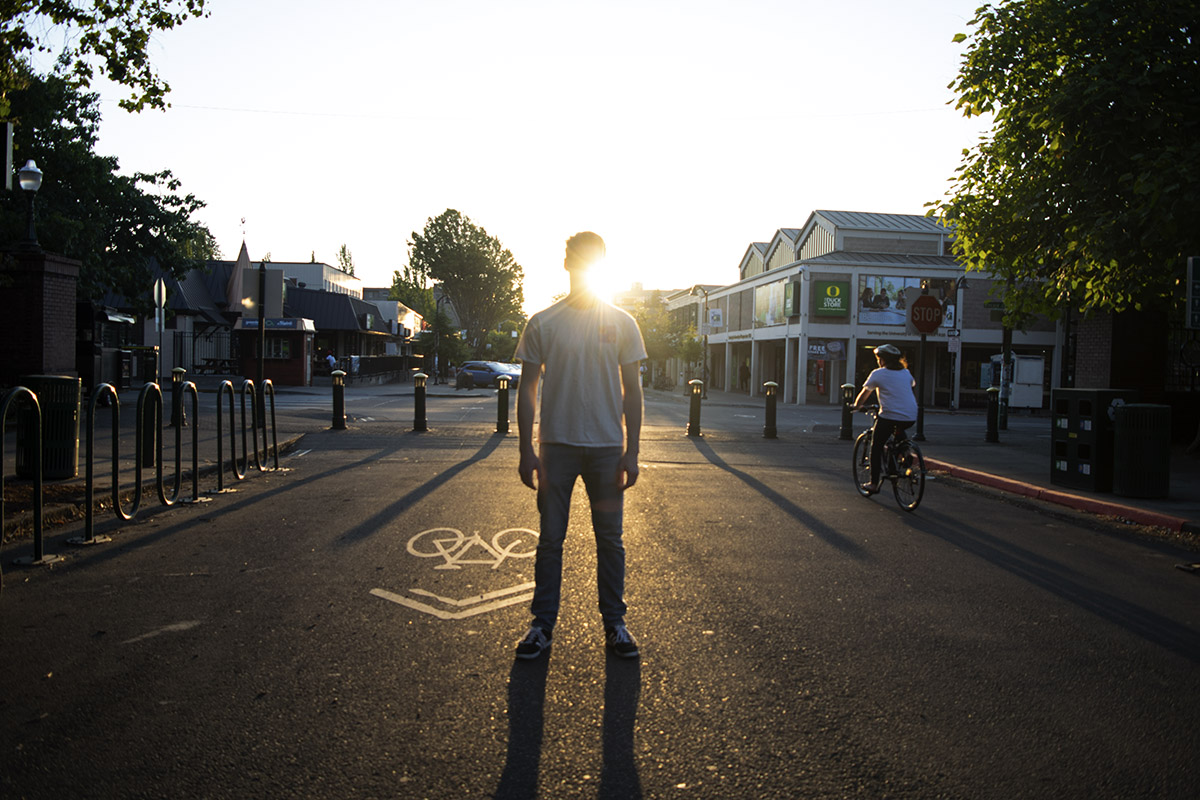After getting dressed and lacing his new Vans, James prepares for a long trip to Pittsburgh, Pennsylvania. It’s a 30-minute walk from his apartment to the train station, and a 33-minute train ride to the airport. Despite the distance, James is looking forward to visiting his girlfriend. During the time spent with his girlfriend, James laughs while holding hands blissfully. Although his girlfriend helps him to forget his troublesome past, some days are harder to handle.
What seemed like a social media phenomenon back in fall of 2017 originates to over a decade ago when Tarana Burke, a black female activist from Harlem, New York, began the MeToo movement. The movement was created to support underprivileged women of color.
It started after a young girl shared her story with Burke while she was a youth worker, but at the time sent the girl to another specialist whom she thought could handle the situation better. “I could not muster the energy to tell her that I understood, that I connected, that I could feel her pain,” Burke said in her original MeToo statement in 2007 when founding her company Just Be Inc.
The importance of MeToo was implicit in its beginnings: Survivors needed a place where they not only felt heard but could find others who shared a deep understanding of their pain. There was a need for a movement that would embrace the women and men who had been turned away.
The movement that began with Burke was lost over time. It was reignited via social media by actress Alyssa Milano in October 2017 after she encouraged people to change their statuses to “me too” in order to reveal the magnitude of sexual assault. The response was overwhelming and provoked endless investigations, support, and justice.
This movement became a platform for not only female but male survivors as well. And while most of the voices we hear are women’s, a man’s voice in the movement is just as significant. Ted Bunch, activist and co-founder of A Call to Men, knows men are vital to change, “The overwhelming majority of violence against women discrimination and harassment against women and girls is men’s violence, but the overwhelming majority of men are not violent, but were silent about the violence other men perpetrate, and that’s as much of the problem as the violence.”
Men are an important aspect of a movement where the majority of victims are women because their voices, as allies, often carry farther than their female counterpart. If men didn’t speak up in support of female victims, there would be a lower chance of tangible change. Not only is there a need for advocacy, but there is also a need for space where men can confidently speak about their own sexual abuse.
Actor Terry Crews is a standout voice, he spoke about his experience being groped by a Hollywood executive and his tribulations when it happened; “‘240 lbs. Black Man stomps out Hollywood Honcho’ would be the headline the next day,” Crews wrote on Twitter regarding his fears of coming forward and being ostracized from where he had made his home and career. Incoming forward Crews’ hopes are to deter predators and encourage those who feel hopeless.
In order for the MeToo movement to continue to gain traction and bring justice, voices, whether celebrity or otherwise, is paramount. James’ story, now more than ever, is an important progression in the revealing of unspoken truths.
Not all of James’s relationships have been like the one he has with current girlfriend, easy and supportive. Prior to now, he was in a relationship that degraded him. James was a victim of sexual assault, and it took a long time for him to open up about that abusive relationship.
This is not uncommon, only 16% of men with documented assaults consider themselves to have been sexually assaulted and even fewer men come forward. A 1998 study reviewing research on male childhood sexual abuse concluded that the problem is “common, under-reported, under-recognized, and under-treated,” and yet there has not been a comprehensive and new study on male sexual assault since the late 90s.
The relationship began just prior to James’ 17th birthday. It was his first relationship, and much of the language used between himself and his girlfriend he perceived as normal. He didn’t see it as manipulative, but rather how a relationship with traditional gender roles should function. His girlfriend would say things that would make him feel like he wasn’t a man or a proper boyfriend if he didn’t do something in a particular way. “It didn’t hit me until we had broken up that all the language she was using was very manipulative, especially in the sexual realm,” he says.
Society has a hard time understanding male victimization due to a pervasively toxic culture and hegemonized gender roles. “There was a lot of disbelief among my friends that I confided in when I had discussed what had happened,” James says. “There were a lot of excuses made just because it was a relationship.” However, relationships are not a protective shield when it comes to sexual assault. In a study regarding sexual assault, it was found that 16.2% of the men reporting being raped and/or physically assaulted since age 18 were victimized by an intimate partner.
Not only did his close friends question his experience, but James had self-doubt too. “I didn’t want to believe that it was sexual assault.” A large part of his disbelief stemmed from his identification as a male. Living in small town Sisters, Oregon influenced how he was raised, and it formed the orthodox gender roles he learned to adhere.
Romance novelist Santino Hassell suggests that men often learn they aren’t allowed to be the victim, “If you call yourself a victim, you’re acknowledging that something happened to you that you couldn’t control.”
Luckily, James moved away from his small town, the confining views on masculinity, and his ex-girlfriend when he went to college in Seattle, Washington. At first, it wasn’t easy to cope. “She had made me feel so low and small,” James says. He finds it surprising that after four years, it still affects him.
While in college, his experience had changed how he approached friendships and in gauging whether he could open up to new people. After finding the right friends and a remarkable girlfriend, he finally felt he could move on and tentatively come to terms with what happened. “For a long time, I thought I was the one doing something wrong, but now I know it was her,” he said.
Even though he is coming to terms with his trauma, day-to-day comments and jokes from his housemates have an uncontrollable effect and cause anxiety. He often felt that he couldn’t say anything. “I always thought it would circle back around to that male stigma,” said James. “And it’s really hard to talk about.”
Even though the MeToo movement primarily has an emphasis on women and sexual assault, it has allowed space for men to be open. James likes to give credit to the movement for allowing him to feel comfortable with his past, but still has reservations about sharing his story in such a public setting based on how his friends reacted with the news.
James agrees that if the culture of male silence were to end, he would feel safer to share his own story. He knows it is important for men to come forward in order to empower other men.
His experience with sexual assault was the reason he decided to pursue psychology as a major. Being in the classroom, learning and understanding the science behind the trauma, helped him better comprehend what happened to himself and what others go through.
And while there are far fewer men than women involved in the movement, James thinks MeToo is valuable.“It’s important for any and all survivors of sexual assault to feel like they can stand up, have a voice, and call attention to something that has been happening in this society for generations,” he says. “I personally hope it continues to build even more until we realize that sexual assault is a serious problem that has barely even been touched.”





![Words | Renata S. Geraldo Art | Maddy Wignall   Sex trafficking takes on many different forms. Women from poor families fall victim and are kidnapped or sold into prostitution. In the United States, prostitution and trafficking take a different form. Trafficking happens through coercion and manipulation; a much subtler […]](https://ethos.dailyemerald.com/wp-content/uploads/2018/10/8ad948459029f9a809f9628092dca222.png)


![[Photo Courtesy of the Lara Family]
Ruben embraces his beloved childhood goat, Katrina.](https://ethos.dailyemerald.com/wp-content/uploads/2025/05/katrina-1-1060x1200.jpg)



